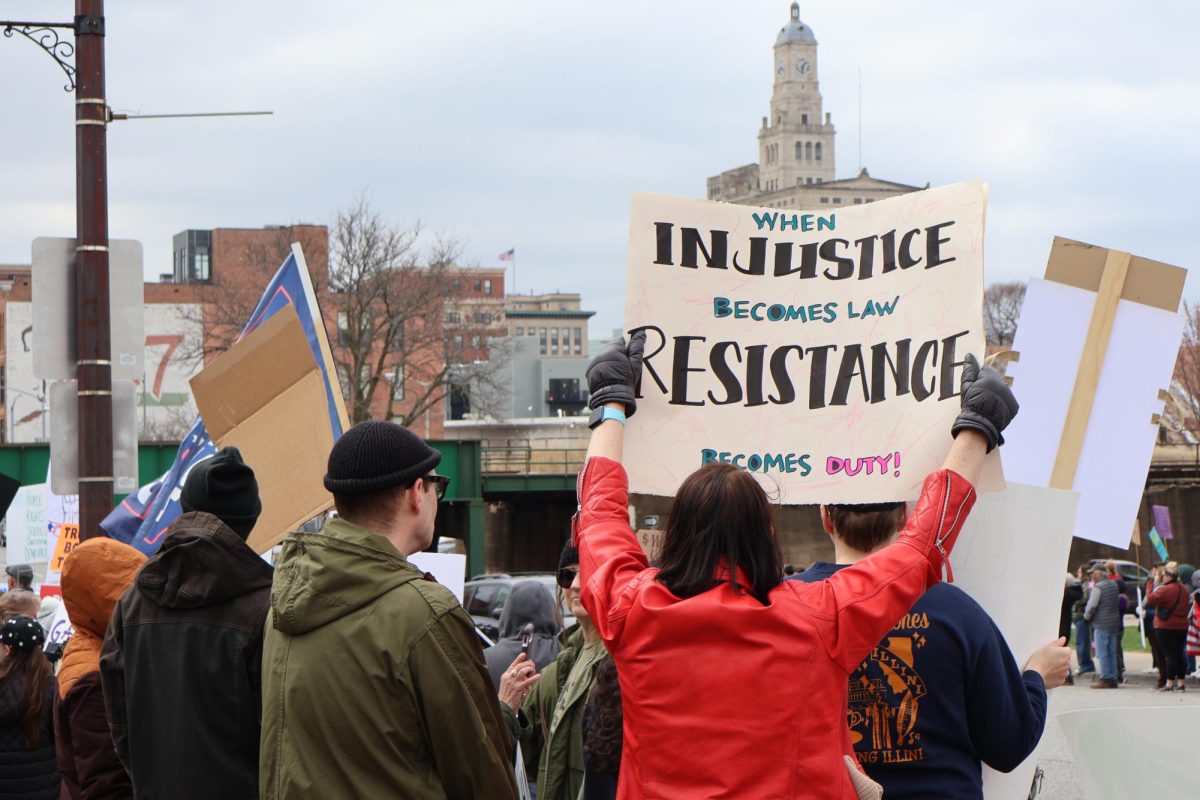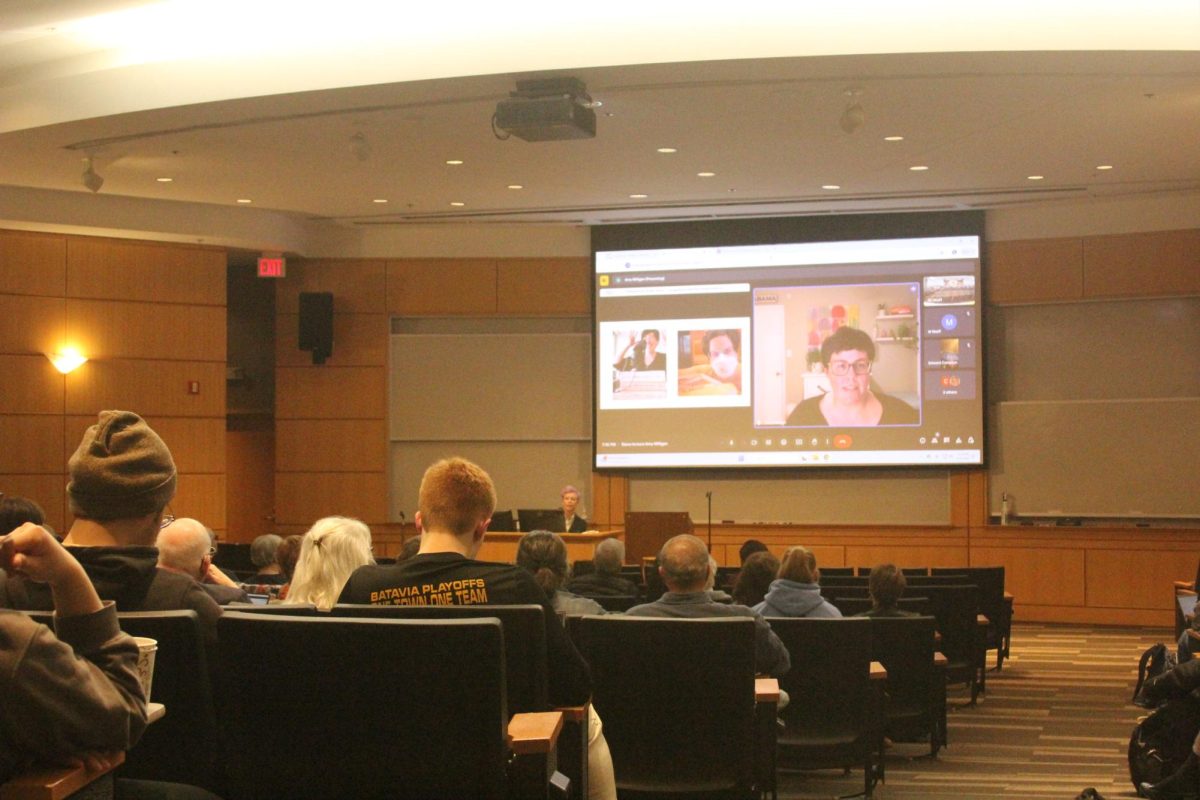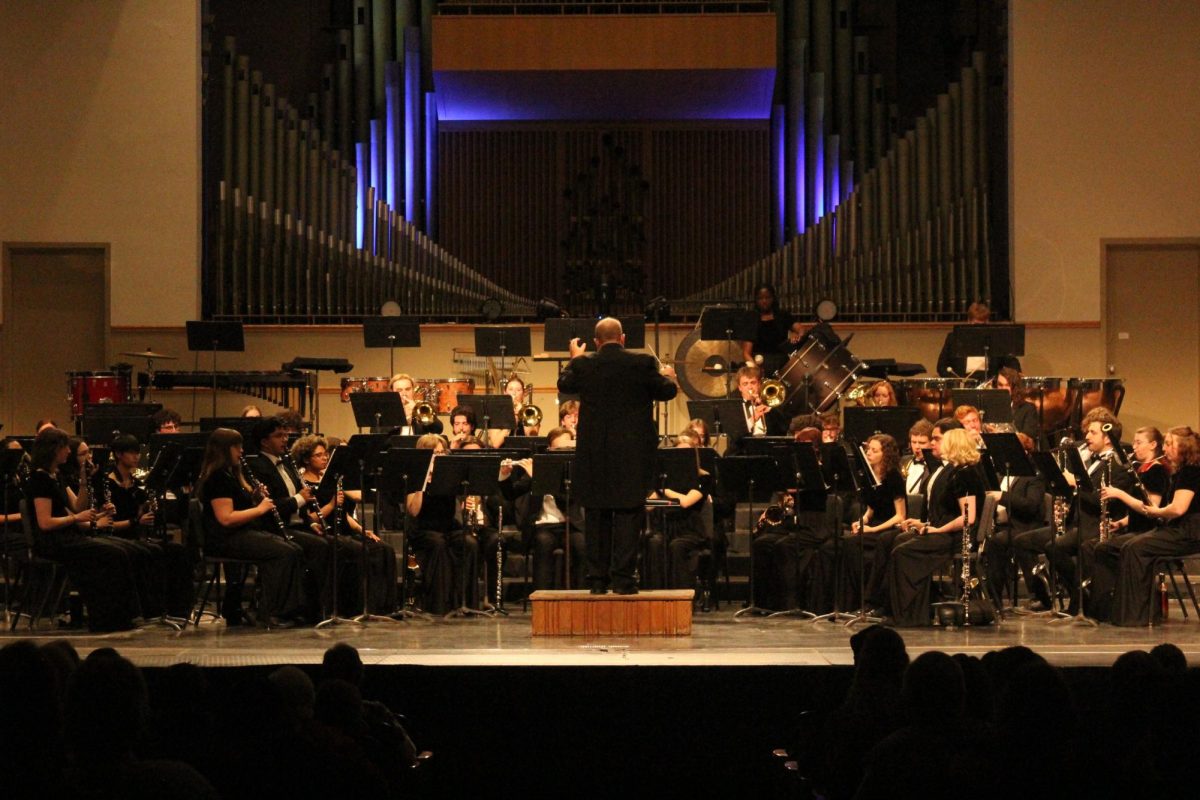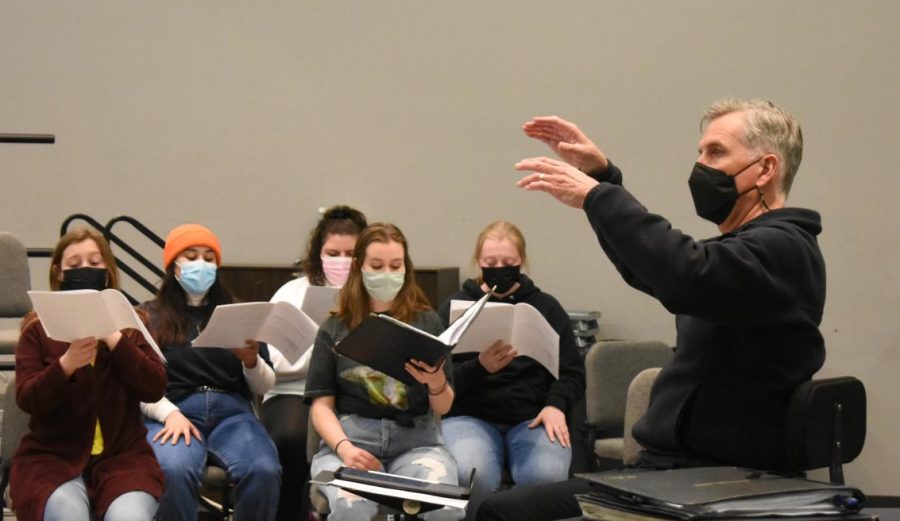Singing without masks: How choirs have adapted through the pandemic
Jon Hurty conducts students during choir practice in Larson Hall.
April 8, 2022
Over the past two years, classrooms have faced changing COVID-19 policies, including social distancing, smaller class sizes and hybrid offerings. However, one activity has faced some of the most extreme mitigations Augustana could offer: choir. But now that classrooms are becoming mask-optional, choirs will also be following this policy change.
The choir department has monitored the results of an aerosol study conducted by the American Choral Directors Association (ACDA) to best decide how to combat the risks of singing throughout the pandemic because singing projects more aerosol droplets into the air than simply talking in class. When students in academic classes had to be six feet apart last year, choirs had even more extreme spacing. Dr. Jon Hurty, professor of music and director of Augie Choir, said student distancing was not the only additional precaution choirs had to take.
“We used Centennial, Wallenburg Hall and the Chapel, and we were all 12 feet apart wearing masks,” Hurty said. “In addition to how we set up, we also were singing for 30 minutes and then we had to leave the room for 15 minutes and then sing for another 30 minutes.” This break was to recirculate the air to lower the risk of infection.
These measures negatively affected a vital part of participating in an ensemble: the sense of community among singers. “It had a huge impact on the social quality of being in an ensemble. Which is a big part of the experience,” Hurty said. Students could not talk to each other across the 12 feet of space, were discouraged from being close during the 15 minute break, and had difficulty connecting with each other.
After almost 50 years of teaching music, Hurty had to learn how to teach singers without seeing their mouths. And, through teaching a virtual choir over Zoom, he had to learn how to teach without hearing his students as well because the students could not sing at the same time without a lag.
“It was really fascinating to approach music in a completely different way than what I do in my normal daily rehearsal routine,” Hurty said. He had to rely on the students to be self-directed problem solvers in his virtual choir and learn to rely almost entirely on his ears for masked in-person choir.
However, after two years of more extensive protocols, choir classrooms now have the go-ahead to reduce mitigation efforts.
“When the school goes mask-optional, our professional organizations have said you should go with the risk level in your community as well as what your organization said. So when Augustana says we can go mask optional, professional organizations are saying we can, too,” Hurty said.
Hurty expresses mixed feelings about optional masks in choir. “I’m very excited about being able to see the singers and be able to smile at them while I’m conducting and help them with the whole expression of my face and see the whole expression of their faces when they’re singing,” he said. “I also continue to have some concerns about spreading COVID. While I think that the risk is down more and the levels of infection are down, it’s not gone.”
Shannon Conniff, a senior in Jenny Lind Choir, expresses similar concerns. “Of all the activities for masks to be optional, it’s one of the more dangerous ones,” Conniff said. “So when it comes to music ensembles in general, it being optional is a little bit scary. But I have confidence that the people who truly need to wear a mask will continue to wear a mask.”
Mary Isabel Sales, also a senior in Jenny Lind Choir, believes that even with the changing requirements, it’s more important than ever to continue to be respectful and empathetic to those around you. “I personally don’t have any issue with taking off the mask, but I don’t want to do it if even one person in the choir feels like it’s a bad idea. I want to be as respectful as I can,” Sales said.
After years of keeping our campus community as safe as possible, Augustana is taking another step toward a feeling of normalcy. “I think we’ve learned to cope a lot in the last two years. But I’m excited for the future,” Hurty said.




































































































